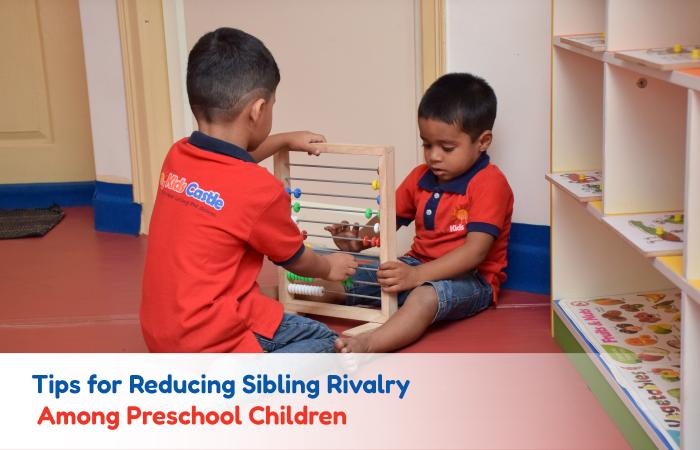Sibling rivalry is a common and regular occurrence in families with multiple children. Preschoolers, in particular, may experience heightened rivalry as they navigate the challenges of sharing toys, attention, and personal space.
Sibling rivalry can arise from various causes. Preschoolers’ natural self-focus can lead to competition and jealousy, making it difficult for them to share their parents’ attention. In other words, they have self-centered thinking or me-first thinking. Parents need to foster understanding by acknowledging and validating their children’s emotions.
For example, reflective listening techniques can help children feel heard and understood.
Awareness of Sibling Rivalry
Sibling rivalry has multiple root causes. Preschoolers’ innate egocentrism can lead to competition and envy, which makes it difficult for them to share their parents’ attention. Individual variances in temperament, interests, and developmental stages exacerbate these conflicts. If kids feel abandoned, they may also act out to get attention from their parents. Younger siblings often copy their older siblings, which can cause tension and disputes.
The Sibling Interaction Dynamics
In many families, managing sibling interactions revolves around recognizing each child’s sentiments. Parents can foster understanding and participation by acknowledging and validating their children’s emotions. Having clear rules and expectations within the family—focusing on respect, kindness, and sharing—helps to keep things in order.
Encouraging Individual Attention and Collaborative Play
Fostering cooperative play can assist kids in learning how to respect one another’s skills and collaborate. Regularly spending one-on-one time with each child can also help to reduce rivalry for parental attention and increase each child’s sense of worth.
Mastering the Art of Resolving Conflicts
Teaching kids to settle conflicts on their own is beneficial. It is also essential to teach them how to listen to one another, express their emotions, and make concessions. Seeing their parents act appropriately and resolve conflicts is a great role model for kids.
Establishing Personal Space and Honouring Individual Capabilities
Ensure that every youngster gets some privacy and alone time to reduce stress and promote independence. Celebrating each child’s successes and skills minimizes the urge for comparison and increases self-esteem.
Avoiding Contrasts and Promoting Positive Conduct
Instead of comparing their kids to others, parents should concentrate on their growth and accomplishments. Rewards and incentives for good relationships further reinforce positive interactions among siblings.
Realistic Examples of Attention-Seeking and Sharing
Fairness and positive reinforcement can be applied to everyday circumstances like sharing toys or requesting attention. For example, taking turns with a child when sharing a toy can be more successful than making them share it. Rewarding calm, constructive behavior rather than acts that are done to get attention can also create a more peaceful atmosphere.
When to Ask for Help
Sibling rivalry is normal, but severe or persistent confrontations may require outside assistance. In cases where family rivalry reaches dangerously high levels and creates a great deal of stress, seeking professional help may be essential.
Setting an Example
By setting a good example, parents are crucial in influencing how their kids interact with each other. When parents show love and care for their siblings, they provide a good example that kids are likely to follow. Children look to their parents to offer empathy and caring examples in their relationships. This conduct reinforces the value of close, loving connections between siblings and teaches kids the importance of compassion and support within family dynamics.
Conclusion:
Preschoolers experience sibling rivalry, and overcoming it requires a happy and supportive family environment. Identifying the root causes of disputes and resolving them consistently and compassionately fosters the development of enduring, solid connections between kids. Parents may help their children through these developmental years and promote harmony and family development by being persistent and patient.

